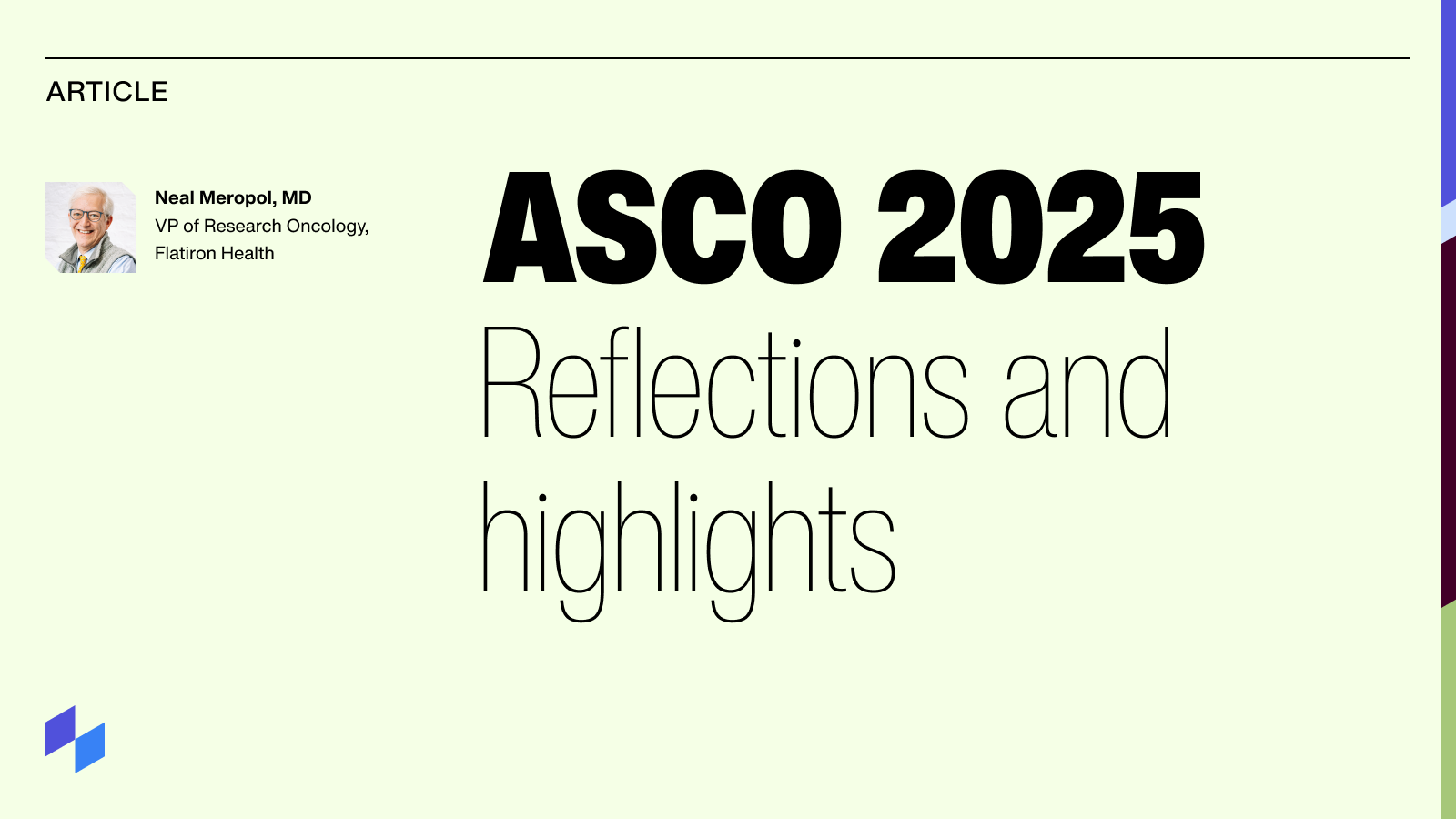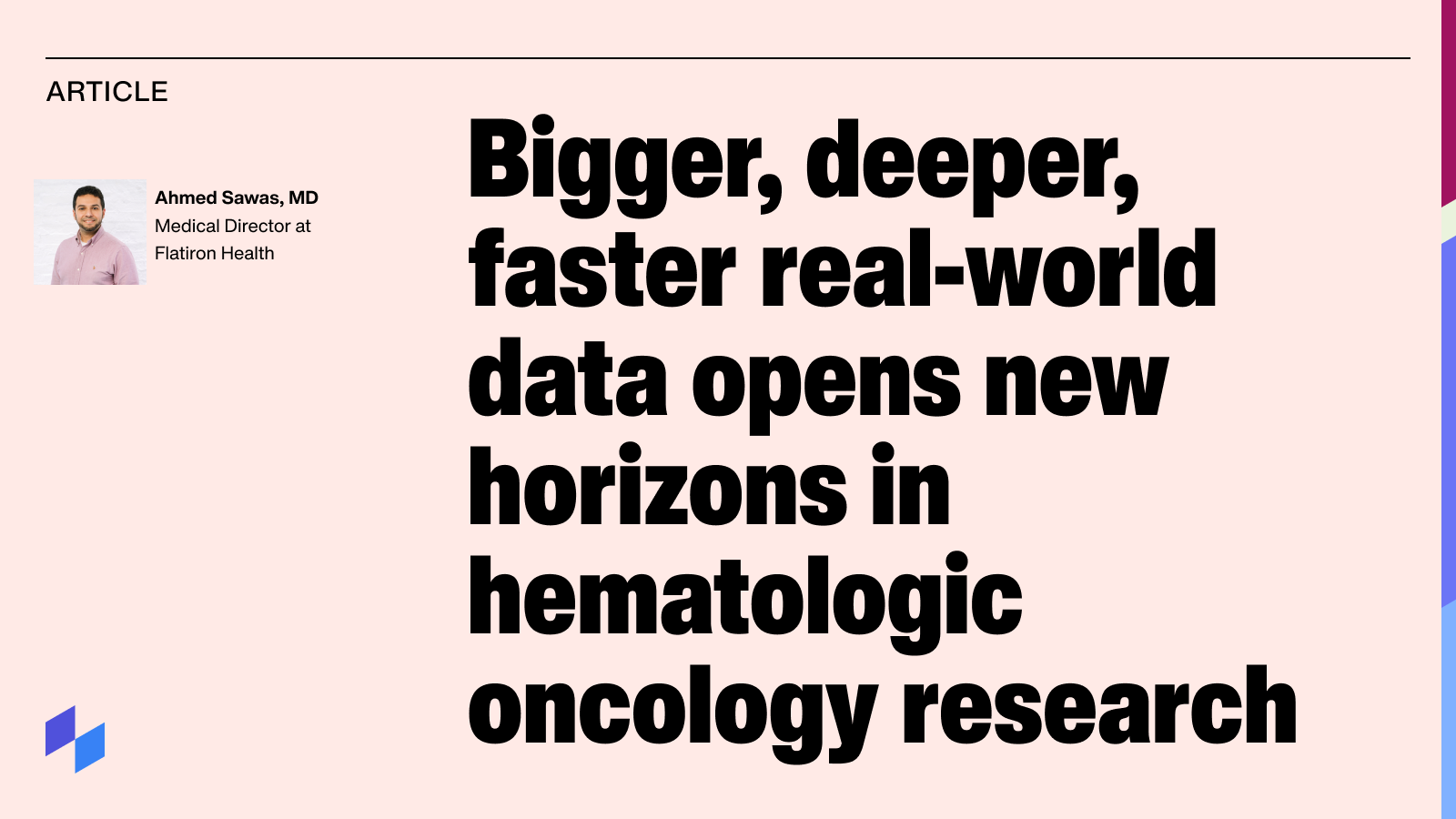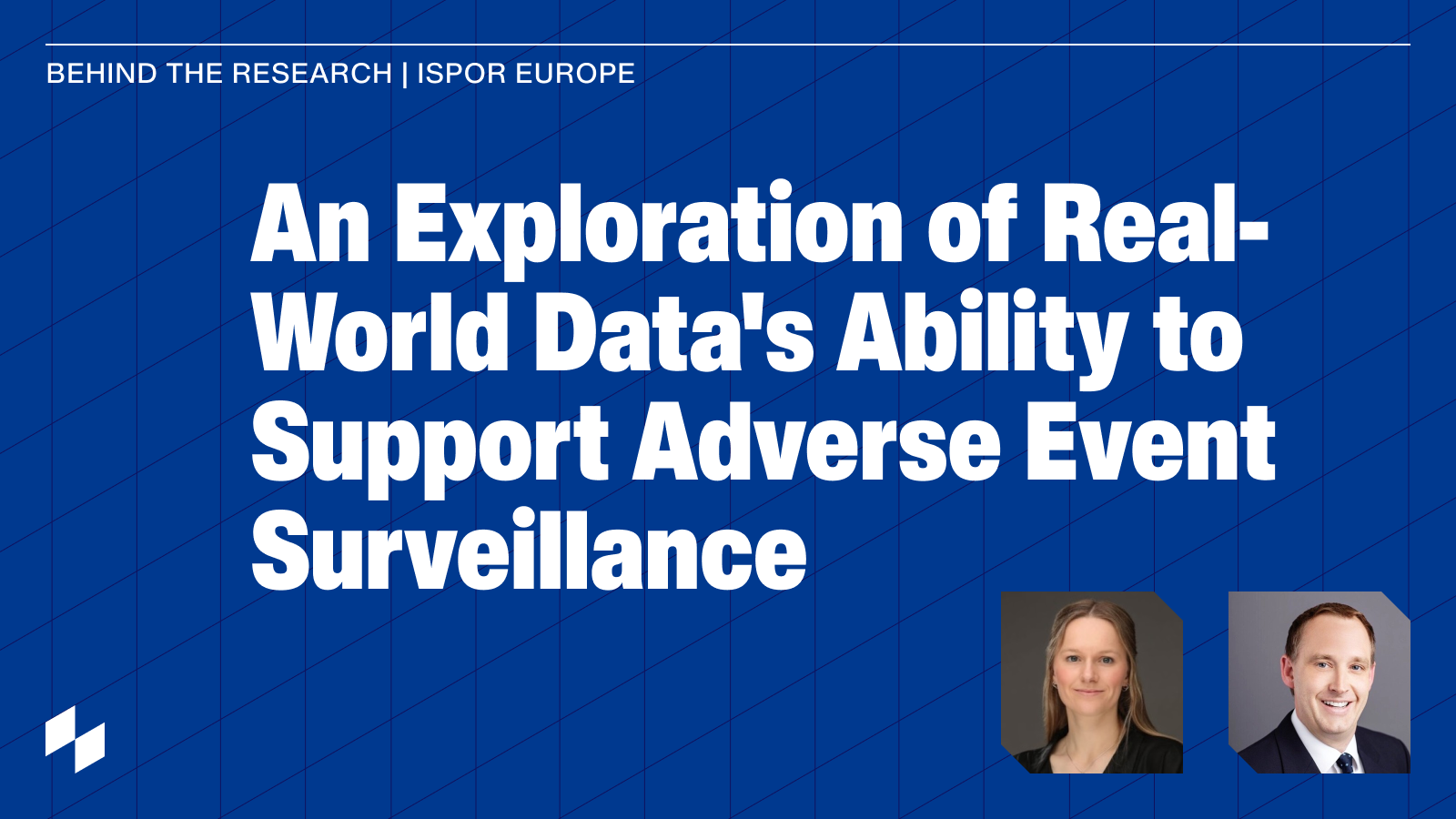ASCO 2025, it’s a wrap. I’m always amazed by how this meeting gets my adrenaline going, between the concentrated science, deep conversations, and simply reconnecting with so many old friends and colleagues. Now back at the peacefulness of my dining room table, dog at my side, I’d like to share four takeaways that resonated most for me.
-
Oncology researchers are a resilient bunch. Every academic institution is facing uncertainty regarding the level of federal research support, and the impact of recent executive actions on the health of the scientific workforce. That said, I was inspired by how my clinical and scientific colleagues are avoiding distraction and staying focused on finding ways to improve the lives of our patients.
-
The impact of novel therapeutics has made its way to early stage settings. Typically, oncology drugs are first developed in patients with advanced disease, where the benefits tend to be modest. The biggest potential overall benefit is experienced in the early stage setting where the goal is curative. As highlighted in this year’s plenary (and throughout the meeting), the clinical development of checkpoint inhibitors has now reached this point, with positive readouts of phase 3 studies in patients with colorectal, head and neck, gastric, lung and other cancers. More cures! Contemporaneous real-world evidence is more necessary than ever as researchers seek to understand how rapidly evolving standards of care impact patient outcomes in routine practice.
-
ctDNA for measurement of molecular residual disease has hit a milestone. Over the past few years, the value of ctDNA as a prognostic marker has been well-established in colorectal and other cancers. However, demonstration of the clinical utility of these tests in driving therapeutic decisions has been challenging. This is multifactorial, including test performance characteristics (e.g. sensitivity), and the challenge in designing and conducting prospective phase 3 trials that include randomization to test alternative treatment strategies. This year’s plenary highlighted the art of the possible, with demonstration of improved disease free survival with treatment change based upon ESR1 ctDNA-detected recurrence in the absence of radiologic findings. A milestone in development of MRD diagnostics.
At this year’s ASCO, Flatiron presented our work to understand how ctDNA testing is being used in the real world and its impact for patients with breast cancer, and also how we’re deploying new technology to enable the efficient prospective collection of ctDNA with longitudinal clinical annotation to explore the clinical implications of MRD across a wide variety of cancers.
-
Advances in artificial intelligence are accelerating rapidly. It is increasingly clear that generative AI will soon touch all of us who treat cancer patients or conduct cancer research. From ambient AI and clinical decision support, to predictive models to real-time patient matching and EHR data curation to support research, etc., the proof points are already here. With all the appropriate caveats around governance, validation, and the critical role of humans, I see these tools in action every day at Flatiron and beyond and am bullish on the potential. We’ll all get to tell our grandchildren how we lived through this transformative time!
As I reflect on ASCO 2025, I’m struck by the sense of momentum and possibility that defines this moment in oncology. The challenges facing our field are real, but so is the collective determination to push forward—whether that means navigating funding uncertainty, translating breakthroughs into earlier and more impactful interventions, or harnessing new technologies like ctDNA and AI to reimagine what’s possible for patients. I leave this year’s meeting energized by the progress we’ve made and optimistic about the road ahead. This year, Flatiron real-world data was used to power over 50 research projects presented at ASCO, attesting to the impact of learnings from routine patient care. Here’s to the next chapter of discovery, collaboration, and—most importantly—better outcomes for everyone touched by cancer. See you next year.
To learn more about Flatiron's Evidence Solutions and how they can maximize use cases across your oncology portfolio, please reach out.



